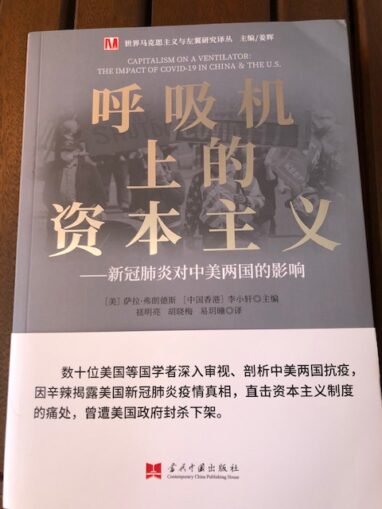[unable to retrieve full-text content]
Chinese AI translation machine startup secures new funding Nikkei AsiaFriday, January 28, 2022
Thursday, January 27, 2022
Found in translation: Children’s books from around the world - Grand Island Independent - Translation

Grand Island Public Library
Independent/Brandon SummersWhen I lived in Japan for a few years after college, I had a startling realization at the six-floor Kinokuniya bookstore in Tokyo.
There are many, many books originally written in English that are available in Japanese — mostly bestsellers, business books, and children’s classics. But manga comics aside, very few books originally written in Japanese are ever made available in English.
Of course, that’s largely due to raw numbers. There are many more books released in English every year than there are in Japanese. But this also extends to other foreign languages.
According to the University of Rochester, works in translation make up only about 3% of books published in the U.S., a fact researchers refer to as the “three percent problem.”

Laura Fentress
That percentage is even smaller for children’s literature.
You’ve probably heard of the Newbery Medal, awarded annually to the author of “the most distinguished contribution to American literature for children.” Newbery books include well-known titles like “Sarah, Plain and Tall,” “The Giver,” and “Because of Winn-Dixie.”
But have you heard of the Mildred L. Batchelder Award, given for books like “Moribito: Guardian of the Spirit” or “The Wonderful Fluffy Little Squishy”?
The Batchelder Award is given annually to a U.S. publisher for the “most outstanding” children’s book in translation (originally published outside the U.S. in a language other than English). We have several Batchelder winners and honorees available at the Grand Island Public Library.
Support Local Journalism
The Batchelder winner in 2021, “Telephone Tales” by Gianni Rodari, originally published in Italian in 1970, is a collection of bedtime stories a traveling accountant tells his faraway daughter every night, each one taking only the time a single coin in a pay phone will buy.
“Brown” by Håkon Øvreås won the Batchelder in 2020. Originally published in Norwegian in 2013, it tells the story of a boy named Rusty and how he copes with bullies and the loss of his grandfather by creating a superhero alter ego.
Also in children’s fiction is a new translation of “Kiki’s Delivery Service” by Eiko Kadono (originally published in Japanese in 1985) about a young witch finding her way in the world. (You can check out the DVD of the 1988 animated film in the children’s section, too.)
The children’s graphic novel “Catherine’s War” (2021 Batchelder honoree) by Julia Billet is based on Billet’s mother’s experiences as a Jewish girl in France forced into hiding as the Nazis rose to power.
If you’re looking for a Batchelder-winning picture book, try “The Wonderful Fluffy Little Squishy” by Béatrice Alemagna (French) about a little girl’s quest to find the perfect birthday gift for her mother, or “The Fox on the Swing” by Evelina Daciutè (Lithuanian), about a little boy who befriends a talking fox.
Teens should check out Nahoko Uehashi’s “Moribito: Guardian of the Spirit” (2008 Batchelder winner) or “The Beast Player” (2020 Batchelder honoree), both originally published in Japanese. Uehashi herself is a cultural anthropologist and her fantasy world-building skills are second to none. “Moribito” is a martial arts epic recounting the adventures of Balsa, a female bodyguard. In “The Beast Player,” young Elin finds herself caught in deadly schemes after she discovers she can communicate with the magical beasts that guard her kingdom.
Also for teens, “Persepolis” by Marjane Satrapi is a gripping two-volume autobiographical graphic novel about the author’s childhood in Iran during the Islamic Revolution, originally published in French between 2000 and 2004.
Literature is a marvelous thing. Organized ink squiggles on a page can transport you to other worlds and open your eyes to new (or forgotten) possibilities and perspectives.
That is, unless you can’t read the language.
So come to the library and pick up a translated book. The world you find within might be very different — or very familiar.
Laura Fentress serves as the youth and family services librarian for the Grand Island Public Library. Email her at lauraf@gilibrary.org.
Subscribe to our Daily Headlines newsletter.
Blog: Some words added to dictionaries not 'awesome' (1/27/22) - Brazil Times - Dictionary
Some words added to dictionaries not ‘awesome’
By Mary Lou Sartor

We received very little snowfall here up until now. Regardless of the inconvenience and extra work; much beauty is associated with freshly fallen snow. I no longer create angels in the snow.
My wings have dropped some feathers and I can’t gain any lift. People here might talk and call that action, at my age, something far less than awesome.
I won’t say a snowfall is awesome. The centuries-old, totally overworked adjective is not an “in” word now. After listening to winners of the Oscars and Emmys and others give brief, long and sometimes tasteless acceptance speeches; the overused words like awesome and amazing becomes tiresome. God and mother were not mentioned as often and they are the most amazing of them all.
Most of us have a word-hoard in store, but it does not hurt to clean house of the least desirable ones and add some new and better choices in the mix.
For instance, I had to cast away the word raunchy years ago. My mother thought it was vulgar.
Raunchy means slovenly, dirty, obscene and smelly. I used it to describe my worn-out tennis shoes a couple of times and I lent it to my little sister's ears once. The little seven-letter word caused such a stink at our old fat-legged table it has been jailed in my vocabulary’s store, out of reach of my thinking cap for many years. I gave it a little space in this article today. That ‘bad’ word won’t come out of my mouth again Mom - ever.
In 2005, the rap star BG’s album “Chopper City in the Ghetto came out. The business-savvy fellow remarked that he wished he had patented the term, for the reason of profit from its extensive use. B.G. added that he used the term to describe their jewelry.
Several Cadillac Escalade billboards and magazine advertisements used the term Bing- Bling to promote their expensive vehicles. Even wine coolers carried the name MD 20/20, also Mad Dog market a flavor called Bling Bling Blue Raspberry.
The folks at Merriam Webster saw the need to officially add the term and several other words to their English dictionary (July 2006). I think it sounds less than awesome and rather dirty like the word raunchy.
Some dictionary experts decided to take the sting out of buckshot and decided to drop it from its pages. Bling Bling is still in use.
Now we are using Covid-related terms. I think we are more than ready for those words to drop out of sight and take the virus with them. That would be awesome. Just saying…
Reach me by phone at 1-317-286-7352.
The Climate Change Dictionary: What Is Carbon Colonialism? - The Quint - Dictionary

The Climate Change Dictionary’ is all about the buzzwords in the global politics of climate change, and carbon colonialism is making all the waves recently.
However, this explainer begins with a story of George and Govardhan.
George lives in the US and Govardhan lives in India.
For context: George’s per capita emissions are already far higher than they should be. He has a good life, access to luxuries and can also afford a vacation or two every year.
While Govardhan’s emissions are super low. He doesn’t have a regular electricity supply in the house, no air-conditioning, no hot water in the shower or actually no water, no shower and no pipelines.
So now George one day flies down to Govardhan’s small little hut near his farm in a small village and tries to cut a deal.
George says, "buddy, listen, we are both woke, we know all about global warming, we’ve got to save the planet and we must cut down on our carbon emissions as much as we can."
Govardhan nods.
George asks him to assume carbon to be a coin of gold that all humans on the planet have. All humans are allowed ten coins of gold. Each coin allows a certain level of carbon emission.
George has spent tens of these coins in his life so far, before these limits or conversations around it came into being, while Govardhan only maybe six.
George tells Govardhan that now he wants to buy a private jet and since both care about the planet, he has figured a way to save the planet and still buy his private jet.
He tells Govardhan to give him eight of his coins. If Govardhan gives these coins, George will have his private jet. But, Govardhan will also have to say goodbye to that hot shower for life.
While Govardhan’s emissions might be low right now, he needs to retain his supposed quota for carbon emissions or ‘carbon space’ to ensure development in the future.
His per capita emissions should go up because Govradhan deserves that hot-water shower in his life.
Join the dots… George is the greedy, gaslighting developed world and Govardhan is the developing world.
At the recently concluded COP 26 in Glasgow, the UN Climate Change Conference– the spokesperson of LMDC, a group of Like-Minded Developing Countries said that the principle of CBDR or Common But Differentiated Responsibility towards climate change can not change into common and ‘shared’ responsibility.
Differentiating between the capabilities and responsibilities of Govardhan and George is a must because when that is not done, Govardhan gets left behind, trampled on, exploited by a – sure, well-intended, but certainly super selfish and greedy– George.
And this is carbon colonialism and it manifests in different ways like pushing developing countries to announce immediate net-zero targets or lopsided conversations about achieving the 1.5-degree global temperature target while entirely ignoring the development needs of a large part of the world.
Shifting the burden of responsibility towards developing countries simply goes against climate justice.
Wednesday, January 26, 2022
China welcomes Chinese translation of ‘Capitalism on a Ventilator’ - Workers World - Translation
 We have very exciting news! The Chinese translation of “Capitalism on a Ventilator — The Impact of COVID-19 in China & the U.S.” — originally published in 2020 by World View Forum as a joint project of the International Action Center and China-U.S. Solidarity Network — is out and being discussed in China.
We have very exciting news! The Chinese translation of “Capitalism on a Ventilator — The Impact of COVID-19 in China & the U.S.” — originally published in 2020 by World View Forum as a joint project of the International Action Center and China-U.S. Solidarity Network — is out and being discussed in China.
Contemporary China Publishers, the publisher of the Chinese translation, has planned a big rollout. We’ve received word that, based on high recommendations, hundreds of bookstores and online sellers are interested in carrying the Chinese translation of the book.
“Capitalism on a Ventilator” was co-edited by Sara Flounders, Workers World contributing editor and co-coordinator of the International Action Center, and Lee Siu Hin, director of the China-U.S. Solidarity Network, who has been involved in the Asian Pacific American Labor Alliance.
The anthology contrasts the effective Chinese response to COVID-19 with the disastrous response here in the U.S. and pushes back against the racist anti-China campaign in the media. The book was a tremendous challenge, involving months of effort to gather the contents of the anthology and then to find printers, online publishers and distributors for the book, which was censored by Amazon.
Workers World writers, who followed the impact of COVID-19 from its beginning in the U.S., drew comparisons to China’s handling of the pandemic and raised demands and concrete struggles as the virus spread; their articles are quite prominent in the book. Other chapters are by well-recognized left and anti-imperialist voices: Mumia Abu-Jamal, Lee Siu Hin, Margaret Kimberley, Vijay Prashad, Ngo Thanh Nhan, Ajamu Baraka, Max Blumenthal, Kevin Zeese and Margaret Flowers.
Many of the chapters were first posted on workers.org and IACenter.org.
According to Wang Weiguang, Standing Committee Member of the Chinese People’s Political Consultative Conference National Committee, Director of the Ethnic and Religious Affairs Commission, Former President and former Party Secretary of Academic Department, Chinese Academy of Social Sciences: “The book, written by dozens of scholars from the United States and other countries, describes with realistic strokes the ‘grief’ and ‘pain’ of the American people under the impact of the new coronial pneumonia. It deeply analyzes and criticizes the capitalist system’s ability and efficiency to deal with sudden public health [crises] and exposes the most hypocritical, reactionary and backward side of the most developed capitalist countries in the world.”
Jiang Hui, Vice President of the Chinese Academy of Social Sciences, Member of Party Group, Director of Contemporary China Research Institute, Dean of Marxist Studies states: “In the strong contrast between China and the United States in the fight against SARS, the book uncovers the hypocritical side of the world’s most developed capitalist countries, sounds the ‘alarm bell’ of the ineffectiveness of capitalist governance and enlightens the public to explore a new way of thinking.”
Co-editor Flounders adds to these evaluations: “We could not have imagined how disastrous the virus impact would be in the U.S. and in other developed capitalist countries. As Marxists we did know that in a country totally dominated by a handful of billionaires, their interests in profiting from testing, vaccines, production of personal protective equipment and from the theft of our labor would overwhelm people’s need for free health care for all. Then the deaths tripled after the book came into print.
“To see the enthusiasm in China for this book is encouraging. China followed a scientific, people-oriented approach that prioritized the health and safety of the whole population. This gives us, as Marxists, a real-time comparison in the difference socialism makes in handling a new phenomenon.”
Lost in Translation - Commonweal - Translation

The alternative to such “ideological colonization,” Francis insisted, is on the one hand “reality therapy”—clear acknowledgement of the facts as they stand—and on the other, true dialogue concerning remedies to be taken. Pope Francis’s original Italian is suggestive: all countries, and especially poorer ones, need to be granted a “voce in capitolo,” literally a “voice in the chapter.” The English translation (“to have a say”) misses the key metaphor of the pope’s views on genuine diplomacy. In the Benedictine tradition, members of the community all have the opportunity to express their views in the chapter room; instead of “politics as usual,” a clash in which might makes right, there is long deliberation followed by discernment. In any decision taken, the good of each individual member goes hand in hand with the good of the whole community.
Francis’s hope, articulated at the end of his speech, is that deliberation and dialogue among nations, once practiced, can become “contagious” and spread throughout the world. At this point, though, it seems like wishful thinking. Even in the sphere where Francis can exert control—that is, the inner workings of the Church—he has failed to convince many of his brother bishops, especially in the United States, to take up his project of synodality. It is tempting to suggest the pope and his advisors could benefit from a dose of reality themselves. On the other hand, we shouldn’t let the loose interpretation of “cancel culture” obscure Francis’s bigger point: our interconnected crises of global poverty, war, migration, and climate devastation aren’t just problems rich countries should work to alleviate, but outcomes for which they bear direct responsibility.
The Hilarious Translation Mistake KFC China Made With Its Slogan - Mashed - Translation

We know and love KFC for its crispy fried chicken, mashed potatoes and gravy, and fluffy biscuits. You hear the phrase "it's finger-lickin' good," and you immediately think of the food chain, and for a good reason. Before it pressed pause in 2020 on using the famous slogan in ad campaigns, it had been in use for an impressive 64 years, according to the chain.
However, this isn't the first time KFC's slogan made people scratch their heads. According to Business Insider, KFC made a bit of a translation boo-boo when it first opened in China in the 1980s. "Finger-lickin' good" was somehow translated to "eat your fingers off." Far from appetizing, right?
Fortunately for this fried chicken chain, the mistake didn't scare off too many customers. By 2011, KFC made up about 40% of the fast food industry in China, per the Harvard Business Review.